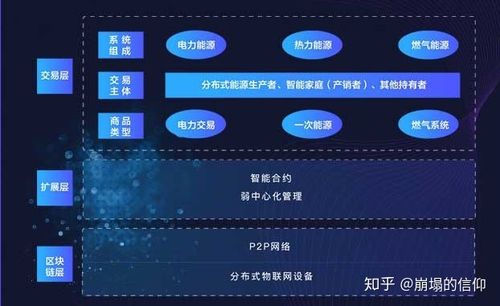区块链私有链行业链
Title: Ensuring Security in Blockchain Private Networks
In the realm of blockchain technology, security is paramount, especially in private networks where sensitive information and transactions are handled. Security measures must be robust to prevent unauthorized access, tampering, and other malicious activities. Let's delve into the realm of blockchain private network security and explore strategies for ensuring its integrity.
Understanding Blockchain Private Networks
Blockchain networks can be broadly categorized into public, private, and consortium (or federated) networks. In private blockchains, access is restricted to a specific group of participants, offering more control over data and transactions compared to public blockchains like Bitcoin or Ethereum. These private networks are often utilized by enterprises and organizations for various purposes such as supply chain management, financial transactions, and identity management.
Key Security Concerns in Private Blockchains
1.
Data Privacy
: Ensuring that sensitive data stored on the blockchain remains confidential and is only accessible to authorized parties.2.
Access Control
: Implementing mechanisms to restrict access to the network and its resources based on predefined roles and permissions.3.
Consensus Mechanism
: Selecting a robust consensus algorithm that prevents unauthorized nodes from gaining control over the network.4.
Smart Contract Security
: Auditing and testing smart contracts rigorously to identify and mitigate vulnerabilities that could be exploited by malicious actors.5.
Network Security
: Protecting the network infrastructure from DDoS attacks, node manipulation, and other cyber threats.Strategies for Security Testing in Private Blockchains
1.
Penetration Testing
: Conducting thorough penetration tests to identify vulnerabilities in the network architecture, smart contracts, and consensus mechanism. This involves simulating various attack scenarios to assess the network's resilience.2.
Code Review
: Performing comprehensive reviews of smart contract code to identify potential security loopholes, such as reentrancy bugs, integer overflows, and permission issues.3.
Fuzz Testing
: Employing fuzzing techniques to assess the resilience of smart contracts and blockchain protocols against unexpected inputs and edge cases.4.
Static Analysis
: Using static analysis tools to analyze smart contract code for common security vulnerabilities and coding errors.5.
Dynamic Analysis
: Executing smart contracts in a controlled environment to observe their behavior and identify potential security risks, such as unauthorized data access or unintended code execution.6.
Consensus Algorithm Analysis
: Evaluating the robustness and security of the chosen consensus algorithm through theoretical analysis and practical testing under various conditions.7.
Network Monitoring
: Implementing continuous monitoring solutions to detect and respond to suspicious activities, anomalies, and potential security breaches in realtime.Best Practices for Blockchain Private Network Security
1.
RoleBased Access Control
: Implementing granular access controls based on roles and responsibilities to restrict unauthorized access to sensitive data and network resources.2.
Encryption
: Utilizing encryption techniques to protect data both at rest and in transit, safeguarding it from unauthorized interception and tampering.
3.
Regular Audits and Updates
: Conducting regular security audits and promptly applying software updates and patches to address known vulnerabilities and mitigate emerging threats.4.
Immutable Audit Trail
: Leveraging blockchain's immutability to create an auditable trail of all transactions and system activities, enabling easier detection of unauthorized changes or discrepancies.5.
MultiFactor Authentication (MFA)
: Enforcing MFA mechanisms to strengthen authentication and prevent unauthorized access to network accounts and resources.6.
Disaster Recovery and Contingency Planning
: Developing robust disaster recovery and contingency plans to ensure business continuity in the event of a security breach or network disruption.By implementing these security measures and adopting a proactive approach to testing and auditing, organizations can enhance the security posture of their blockchain private networks, mitigating risks and safeguarding sensitive data and transactions.
In conclusion, security testing in blockchain private networks is essential for identifying and addressing vulnerabilities that could compromise the integrity and confidentiality of data and transactions. Through a combination of rigorous testing methodologies, best practices, and proactive security measures, organizations can fortify their private blockchains against emerging threats and ensure their longterm viability and trustworthiness in the digital landscape.











